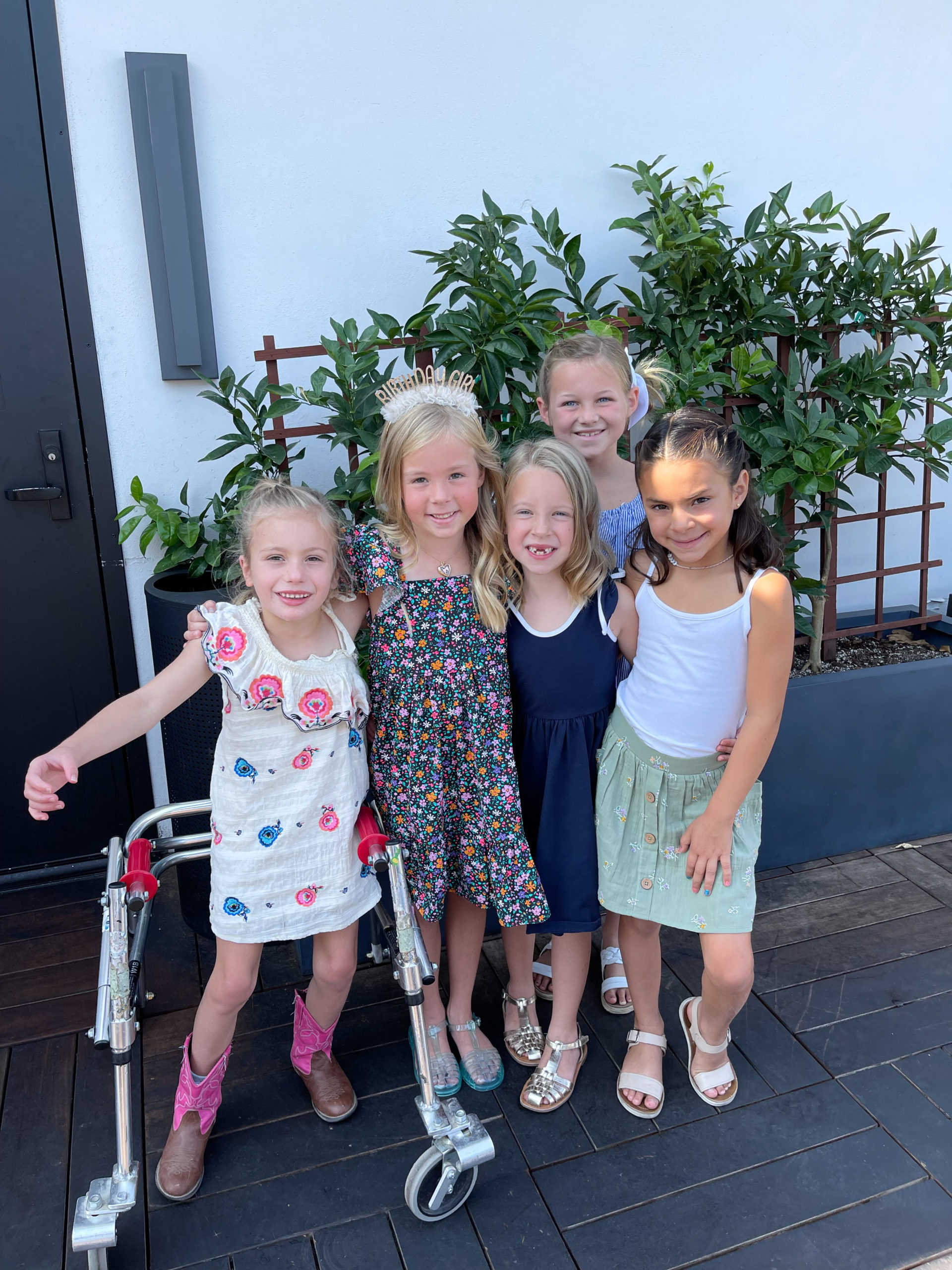With the start of the new school year, there are a couple of things weighing heavy on my mind and one of them is the topic of disability inclusion. As a mom of a special needs daughter, this is something I manage almost daily as we interact with typically-developing kiddos and their families, but it can be challenging to navigate it when you as the parent aren’t in the room.
While the word inclusion might be in my everyday vocabulary, I realize what it actually means might be new to you.
It’s pretty simple when I think of inclusion I think of well… everybody included no matter how they look, talk, dress, eat, learn, move etc.
In the past I have encouraged parents to allow their kids to ask questions, even if it makes you as the parent feel uncomfortable. When you’re with your kid at Target or at the park and they ask why a child they notice “walks funny”, praise them for their curiosity and questioning. Then redirect the words they choose by interchanging them with something positive. For example, “Oh she doesn’t walk ‘funny’ her walk just looks a little different than you or I. I bet if you talked to her about it, she would tell you more.”
Now that our kids are in school (praise), it’s harder to manage those conversations. I know what it’s like to ask your child, “how was your day at school” and get the simple response “good” when really as a mom we want a play by play from the minute they close the car door to the minute it opens back up again. Am I right?
Here are some simple questions you can ask to broaden your child’s outlook (and maybe yours, too), and normalize differences both visible and non visible between them and their peers.
Questions:
- Hey do you notice anyone at recess who sits alone without friends? Have you gone up to say hi and introduce yourself? Maybe try that tomorrow and see if they like to play____ (fill in the name of a show or game they like!)
- Have you seen anyone on campus that might need help getting around? It could be a wheel chair, walker, canes etc. Have you ever thought about offering to push the wheelchair or walk alongside the person who might need some extra time to get around? I bet they’d love to talk to you about it.
- Is your class paired up with any sort of “buddy” from another class? Who is your buddy?
- Is there anyone in your class that you have learned something new about this week?
- Have you noticed your teacher or another adult in the room helping a particular student more? Sometimes students need extra help but that doesn’t mean they don’t want to play and talk about Wild Kratts like you do. You should try talking with them and telling them they’re doing a good job.
- Do you hear anyone calling other kids names that if you were called that name you would feel sad? What would be your response if you heard someone calling another kid something that wasn’t nice? Let’s practice ways you can speak up if you hear someone not being nice to another kid.
You know your kid and their school experience, so if these scenarios don’t apply, get specific with specific situations your child might be in and start the question from that concrete place.
These are all priming questions to get their brains open and thinking. Some kids will naturally be more aware than others and that’s okay! I’d love to know what questions you’ve heard from your kids so we as parents can normalize how to have these conversations!
And while these questions are great for the immediate, the best approach is to build in these conversations over time. Continue to create space for their observations and questions…that’s a sign your child is being thoughtful, which is a perfect time to listen and give advice they’ll actually listen to!
The cool thing about this is after practicing inclusion at school and home, this inclusion can carry over to other real life situations too.
For more reading, here are a few ideas:
This blog I wrote about How can my friends support me as a parent of special needs.
These books:

[…] How to talk to your kids about inclusion […]
Be the first to comment